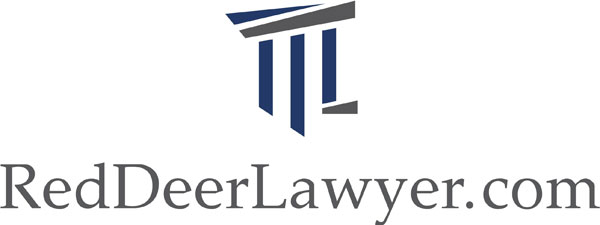PERSONAL REPRESENTATIVE DUTIES IN ALBERTA
There are numerous responsibilities associated with the role of a Personal Representative. One of the first and most basic duties is to ensure that appropriate funeral arrangements are in place for the deceased. If these weren’t already made (and paid for) by the deceased prior to death, the Personal Representative is tasked with overseeing this responsibility – in consultation with family members of course. After the funeral, a Personal Representative in Alberta also has several other responsibilities, including the following:
Death Certificate
- Obtain copies of the death certificate from the funeral home or from Alberta Government Vital Statistics, if required by certain parties like Land Titles or financial institutions.
The Deceased’s Home
- Visit the deceased’s home and make a list of all assets therein.
- Take possession of cash, credit cards, identification and valuables in the home.
- If the deceased lived alone, advise the landlord and the insurer that the home is now vacant.
- Re-key the locks, since the Personal Representative is responsible for any losses or damages to the home at this point.
- Arrange for redirection of mail.
Notification of Death
Each situation is different, but some or all of the following parties will have to be notified of the death:
- Co-owners of estate assets
- Beneficiaries
- Landlord or insurer of deceased’s home
- Banks and other financial institutions and advisors
- Employers or business associates
- Providers of health, benefits and life insurance plans
- All government agencies including: CRA, Canada Pension Plan, Old Age Security
- Insurance companies: home, vehicle
- All phone, internet and utility providers
- Associations in which deceased was a member
- Subscription providers
Legal Advice
In most cases, it’s highly recommended that a Personal Representative retain a lawyer to review the Will and apply for a grant of Probate, if necessary. Collectively, the terms of the Will often determine whether or not an application for Probate will need to be made, but sometimes an application is required by third parties like banks or insurance companies. If the deceased left no Will, a grant of administration must be obtained before the Personal Representative can act for the Estate.
Obtaining Information for a Probate Application
As previously mentioned, a Personal Representative must gather a great deal of information in order to fill out the required forms necessary for a Probate application. See the Probate Forms page for more details.
Banking Duties
- Find out which banks and other financial institutions the deceased had dealings with, and notify them that you are the Personal Representative or Administrator of the Estate – then determine the details of the deceased’s assets in all accounts.
- Access all safety deposit boxes and list their contents down in writing. You will likely have to show the banks the Will and Death Certificate in order to access this. If you are an Administrator, remember to wait before doing this until you‘ve obtained your Grant of Administration.
- Open a separate account for the Estate from which you can administer the Estate.
Assets & Liabilities
- Take an inventory of all the assets and liabilities of the Estate, including all real estate property, and determine the value of each. This information is required to apply for the Grant of Probate or Administration.
- Advertise for creditors. There is no obligation to do this, but it is highly recommended since the Personal Representative is responsible for settling all debts – and if any are omitted, it could be costly or potentially litigious.
- Assess all claims against the estate.
- Pay all debts and other obligations, including all taxes or duties.
- After receipt of the grant, collect all assets to ensure they’re in a form that can be readily and fairly distributed, according to the provisions of the Will (if there is one).
- Invest all estate funds in interest-bearing accounts.
Pensions & Benefits
- Contact the Alberta and federal governments (or any other organizations) to cancel any benefits being paid to the deceased, such as Canada Pension or Old Age Security.
- Apply for Canada Pension death benefits, and other pensions and life insurance benefits.
Insurance
- Review all Insurance Policies to ensure that coverage is adequate on all the assets of the estate.
Business Interests
- Protect all business assets. In some cases, you may need to take care of any short-term or interim management requirements for any of the deceased’s businesses.
Leases
- Review any leases held by the deceased, and arrange for collection of lease payments.
- Review, and if necessary, cancel lease obligations – as appropriate.
Taxes
- File the deceased’s final tax return and pay any taxes owing. Unless the deceased’s Estate is fairly simple, this is likely something you may need to delegate to the deceased’s accountant.
Documentation
- Review the accounts of any Powers of Attorney or Trustees appointed by the deceased.
- Prepare periodic financial statements for the existing assets, liabilities, income and expenses of the Estate, and provide a copy of these statements to all beneficiaries.
Finalization
- Distribute the Estate as directed under the Will (if applicable), and obtain releases from the beneficiaries to confirm that you have discharged your duties as a Personal Representative.
Questions?
Please feel free to contact us if you have any questions that aren’t answered on our site, or to schedule an appointment. We’re always happy to chat with you about any of your legal needs.
- Phone: (587) 272-2050
- E-mail: info@reddeerlawyer.com
